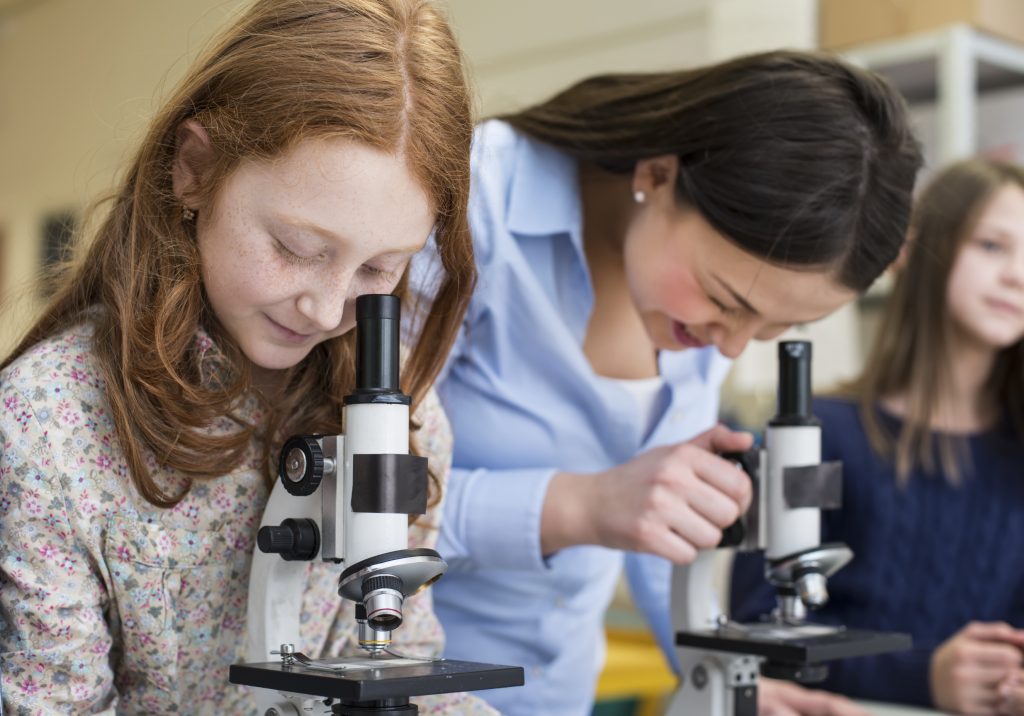Guide to Ireland’s School System
May 6, 2022
If you’re moving with children, you’ll be happy to know that school is free for every child in Ireland, and the high quality of our education in Ireland is a point of national pride. With our guide, we make learning about our schools as easy as A-B-C.
Primary Education in Ireland (age 4-6 up until 12)

Children must start school by age six, but many children are enrolled the first September after their fourth birthday. Primary school is broken down into eight grades: Junior Infants, Senior Infants, and First through Sixth Class. The curriculum includes English, Irish, Math, P.E. and Arts as well as social, environmental and health classes.
The vast majority of primary schools in Ireland are known as National Schools. While mostly government funded, these schools are run under the patronage of religious denominations, about 90% of which are Catholic. Even in religious schools, the curriculum is set by the Department of Education and Skills, so a school’s patronage has no effect on its science classes, for example.
There are also a growing number of Educate Together schools, which have no religious affiliation. While some parents send their children to Gaelscoils where subjects are taught through the Irish language and others may choose to send their children to private, fee-paying Preparatory Schools.
The school day varies but is generally 9am-3pm, though the day may be shorter for Junior and Senior Infants. School starts in September and closes for July and August, with a two-week break at Christmas and shorter mid-term breaks in October, February and at Easter.
Secondary Education in Ireland (age 12 up to 17-18)

Secondary education is generally attended between the ages of 12 and 18. It is broken down into the three-year Junior Cycle (age 12-15) and the two-year Senior Cycle (age 16-18). Each of these cycles ends in a set of state exams, called the Junior Certificate and Leaving Certificate. Students study 9 or 10 subjects for the Junior Certificate and 6 or 7 subjects for the Leaving Certificate. Places for university and college courses are based on grades received for the Leaving Certificate exams. Secondary school students take a combination of compulsory subjects (English, Irish and Math) and optional subjects (French/German or other languages, History, Geography, Music, Business, Art, Technology, Wood/Metal work, Home Economics and more).
Many schools offer an optional Transition Year between the Junior and Senior cycles. This is a less formal year without exams, and is usually a chance for students to try a wider range of subjects and complete some work experience.
The school day in Ireland varies but is generally 9am-4pm. School starts in September and closes for June, July and August (though state exams are held for 2-3 weeks in June for 3rd and 6th year students). There are usually 2 weeks holidays at Christmas and shorter midterm breaks in October, February and at Easter.
Irish Language Exemption
Generally, children must study the Irish language in primary and secondary school, but there are certain cases where an exemption is granted.
- Students who were educated outside of Ireland up until 11 years of age
- Students returning to school in Ireland after at least 3 years abroad who are at least 11 years old
- Students who have a particular learning disability that prevents them from reaching expected attainment levels in their native language
A written application for exemption should be made to the school principal on behalf of your child.
Special Educational Needs
Many children with special educational needs attend mainstream school, and either take special classes within that school or have additional assistance within mainstream classes. There are also special schools around the country for children with mild, moderate or high-level learning disabilities. There are some schools for children with visual and hearing impairments (mostly in Dublin) and a small number of schools for children with physical disabilities. See the National Council for Special Education website for more information.
Applying for Schools
The Department of Education’s Find A School feature allows you to search for schools based on your area. After choosing a school in Ireland, it’s best to apply as early as possible as there may be a waiting list. You can contact a school directly for an enrolment form and their admissions policy. Priority is generally given to children within the immediate area of the school, but when there are more applicants than spaces in a school, a selection process may be used. The selection process will be explained in the policy, and for schools with a religious affiliation, preference may be given to children of that faith. In the case of secondary schools, priority may be given to students from particular primary schools.